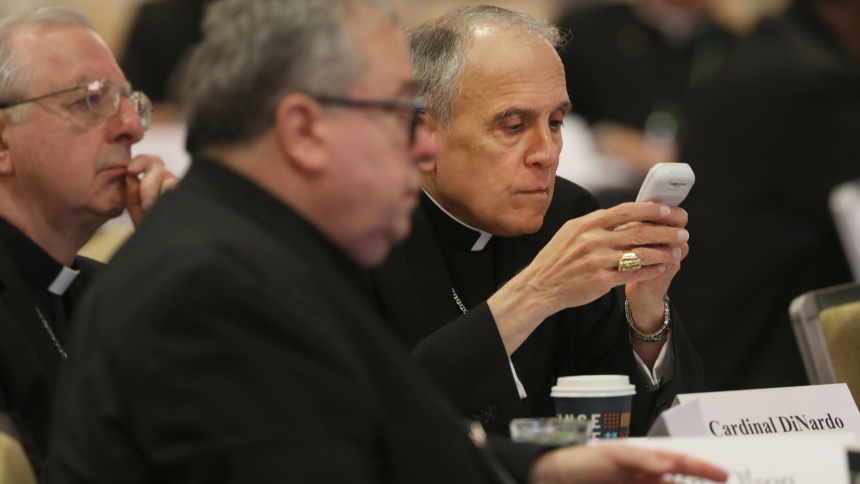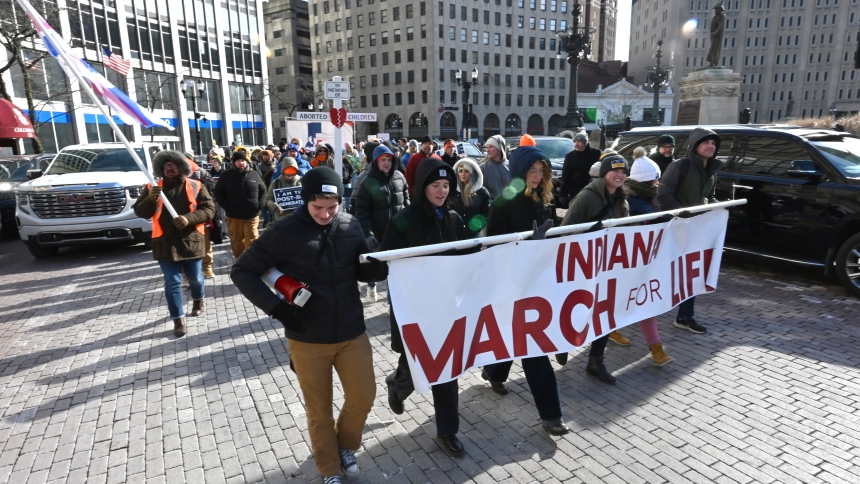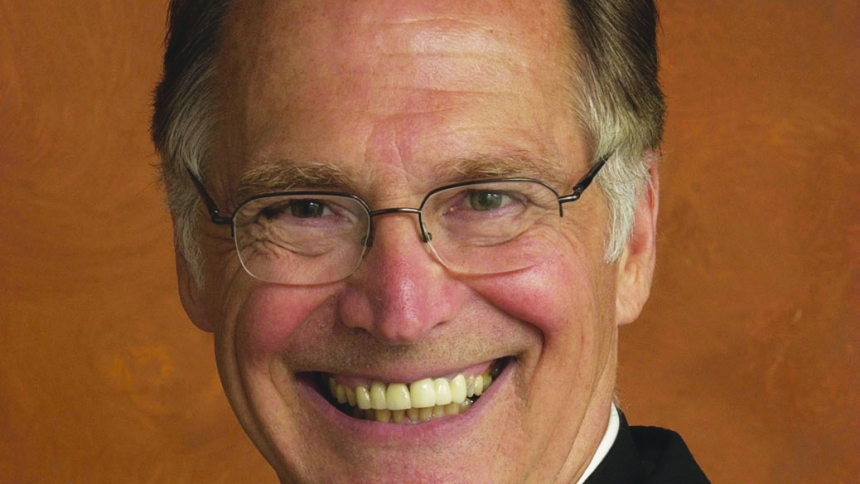
ORLANDO, Fla. (OSV News) - Meeting in Orlando for their spring assembly, the U.S. bishops moved ahead on some efforts to advance the church's mission in the U.S., including new pastoral initiatives aimed at activating Catholics as missionary disciples. The gathering's June 15-16 plenary sessions proved relatively smooth, but featured moments of vigorous discussion at a few points, particularly around the formation of priests.
Archbishop Timothy P. Broglio of the U.S. Archdiocese for the Military Services gave his first address as U.S. Conference of Catholic Bishops president presiding over the bishops' plenary assembly. He covered a variety of issues of concern to Catholics, such as the need for Congress to pass a comprehensive immigration reform and for an end to Russia's unprovoked invasion of Ukraine.
"We cannot fail to see the face of Christ in all of those who need our assistance, especially the poor and the vulnerable," he said.
The papal nuncio to the U.S., Archbishop Christophe Pierre, made his case to the U.S. bishops June 15 that synodality, oriented to Jesus Christ as their "true north," unleashes missionary activity.
"The purpose of walking this synodal path is to make our evangelization more effective in the context of the precise challenges that we face today," Archbishop Pierre said in his address at the U.S. bishops' spring plenary assembly in Orlando.
The archbishop also singled out Auxiliary Bishop David G. O'Connell of Los Angeles, who was shot to death earlier this year, as "a model of synodal service, combined with Eucharistic charity."
The U.S. Catholic bishops gathered voiced their approval for the advancement of a cause to canonize five missionary priests from Brittany, France, known as the "Shreveport martyrs."
"They demonstrated heroic charity during the third worst pandemic in U.S. history," said Bishop Francis I. Malone of Shreveport, noting they were all young men who voluntarily sacrificed their own lives to journey with the dying and bring the Eucharist to the faithful.
In their message to Pope Francis, the bishops also strongly condemned an execution that the state of Florida carried out June 15 in the evening following their meeting.
Bishop Daniel E. Flores of Brownsville, Texas, updated the bishops on the progress of the 2023-2024 global Synod on Synodality. Bishop Andrew H. Cozzens of Crookston, Minnesota, presented on the National Eucharistic Revival, and outlined how the "small group initiative" in the parish year could help deepen people's relationship to Christ in the Eucharist.
"We all know how much our church needs to move from maintenance to mission ... this is really the heart of what we're attempting to do," he said.
Most votes taking place had near unanimous approval, such as the agenda items related to retranslating the Liturgy of the Hours into English, including having the future edition include some prayer texts in Latin.
The bishops approved the National Pastoral Plan for Hispanic Latino Ministry with 167 in favor and 2 against and 2 abstentions. The 62-page plan seeks to respond to the needs of about 30 million Hispanic/Latino Catholics in the U.S. and strengthen Hispanic/Latino ministries at the national, local and parish level.
Ahead of the vote, Bishop Oscar Cantú of San Jose, California, chairman of the bishops' Subcommittee on Hispanic Affairs, told OSV News there was a great need to "get moving so that (the new pastoral plan) can be implemented in our dioceses and parishes."
A day before the vote took place, Detroit Auxiliary Bishop J. Arturo Cepeda, who chairs the USCCB's Committee on Cultural Diversity in the Church, called the plan a sign of the times that recognizes Hispanic/Latino Catholics -- who account for more than 40% of U.S. Catholics -- as "missionaries among us" that can reinvigorate the life of the church.
The most contentious discussion took place regarding the proposed second edition of the "Basic Plan for the Ongoing Formation of Priests." Some bishops took to the floor to object they had not had time to read the document, or that it was so lengthy priests would likely not read it and dismiss its contents.
Other bishops expressed concern that the discussion on "spiritual fatherhood" needed to be fleshed out, expressing concern that otherwise it could fuel the "narcissistic tendencies" and "hubris" of some priests.
Bishop Steven R. Biegler of Cheyenne, Wyoming, said he appreciated the document's beautiful description of the Christian relationship to God as Father, Son and Holy Spirit. "What I find lacking is that communal relationship to the Body of Christ ... that puts us in solidarity with one another as brother and sister," he said.
However, other bishops pushed back against delaying the document, noting the hard work that went into developing it, and that the document was meant to be a guide adapted to the realities of local churches.
Bishop Juan Miguel Betancourt, ordained as a priest for the Servants of the Eucharist and Mary, who is an auxiliary for the Archdiocese of Hartford, Connecticut, said the term "spiritual fatherhood" is "actually a term that is more familiar and clear for those who are younger in the priesthood."
Ultimately, the bishops approved the formation document with 144 voting in favor, 24 against, and 8 abstentions.
The discussion and vote on priorities for the 2025-28 USCCB strategic plan were put on hold so that the bishops could reflect upon and, presumably, include some of the discussion from the synod conversations.
In a voice vote, the bishops approved beginning the process of consultation and revision of ethical directives for Catholic health care facilities to guide them in caring for people suffering from gender dysphoria and who identify as transgender.
Bishop Flores said potential changes would be "limited and very focused" in nature, and involve extensive consultation. He praised the calls from bishops on the floor for a "pastorally sensitive" approach to the complex topic.
The U.S. bishops also voiced approval for the Committee on Laity, Marriage, Family Life and Youth to move ahead on drafting a new pastoral statement for persons with disabilities.
"We do believe a new statement is needed to address disability concerns in the 21st century," Bishop Robert E. Barron of Winona-Rochester, Minnesota, the committee's chair, told the bishops June 16. The intended statement aims to emphasize the giftedness of persons with disabilities, eliminate outdated forms of referring to persons with disabilities, and would be inclusive of persons who have mental illnesses.
During the discussion, Cardinal Seán P. O'Malley of Boston joined Bishop John T. Folda of Fargo, North Dakota, in noting the importance of Catholics being allied with the disability community against assisted suicide, and the cardinal asked for more attention to support parents of children with autism.
The bishops also heard an update on the upcoming World Youth Day in Lisbon, Portugal, and were encouraged to have their own stateside events for youth and young adults "to form them as missionary disciples."
Finally, just before the bishops concluded their assembly, Bishop Earl A. Boyea of Lansing, Michigan, chair of the bishops' Committee on Clergy, Consecrated Life and Vocations, discussed The Catholic Project's 2022 study of 10,000 Catholic religious and diocesan priests that found most priests distrust their bishops with only 24% saying they had confidence in bishops in general.
Bishop Boyea encouraged the bishops to help priests "feel kinship and fraternity with us" through better personal communication, such as recognizing important moments in their lives, and better lines of communicating information to them.
"This is not the completion, but a beginning, to heal our relationship," he said of the report.
At the conclusion of their assembly, recognizing it was the Solemnity of the Most Sacred Heart of Jesus, the bishops prayed together the Litany of the Sacred Heart, invoking Jesus' heart repeatedly to "have mercy on us."
Caption: Cardinal Daniel N. DiNardo of Galveston-Houston prepares to vote June 16, 2023, during the U.S. Conference of Catholic Bishops' spring plenary assembly in Orlando, Fla. (OSV News photo/Bob Roller)



